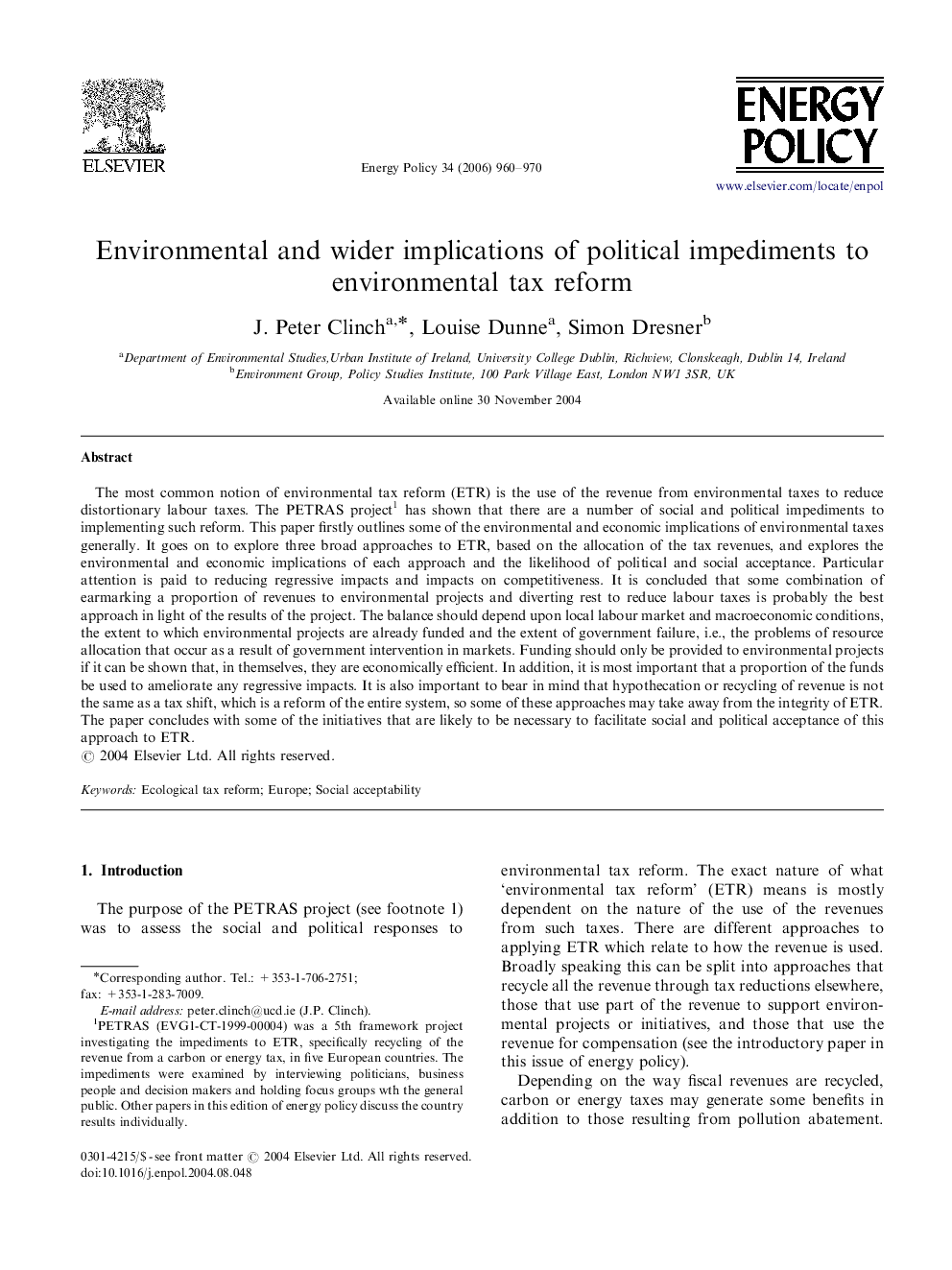| کد مقاله | کد نشریه | سال انتشار | مقاله انگلیسی | نسخه تمام متن |
|---|---|---|---|---|
| 994711 | 936104 | 2006 | 11 صفحه PDF | دانلود رایگان |

The most common notion of environmental tax reform (ETR) is the use of the revenue from environmental taxes to reduce distortionary labour taxes. The PETRAS project1 has shown that there are a number of social and political impediments to implementing such reform. This paper firstly outlines some of the environmental and economic implications of environmental taxes generally. It goes on to explore three broad approaches to ETR, based on the allocation of the tax revenues, and explores the environmental and economic implications of each approach and the likelihood of political and social acceptance. Particular attention is paid to reducing regressive impacts and impacts on competitiveness. It is concluded that some combination of earmarking a proportion of revenues to environmental projects and diverting rest to reduce labour taxes is probably the best approach in light of the results of the project. The balance should depend upon local labour market and macroeconomic conditions, the extent to which environmental projects are already funded and the extent of government failure, i.e., the problems of resource allocation that occur as a result of government intervention in markets. Funding should only be provided to environmental projects if it can be shown that, in themselves, they are economically efficient. In addition, it is most important that a proportion of the funds be used to ameliorate any regressive impacts. It is also important to bear in mind that hypothecation or recycling of revenue is not the same as a tax shift, which is a reform of the entire system, so some of these approaches may take away from the integrity of ETR. The paper concludes with some of the initiatives that are likely to be necessary to facilitate social and political acceptance of this approach to ETR.
Journal: Energy Policy - Volume 34, Issue 8, May 2006, Pages 960–970